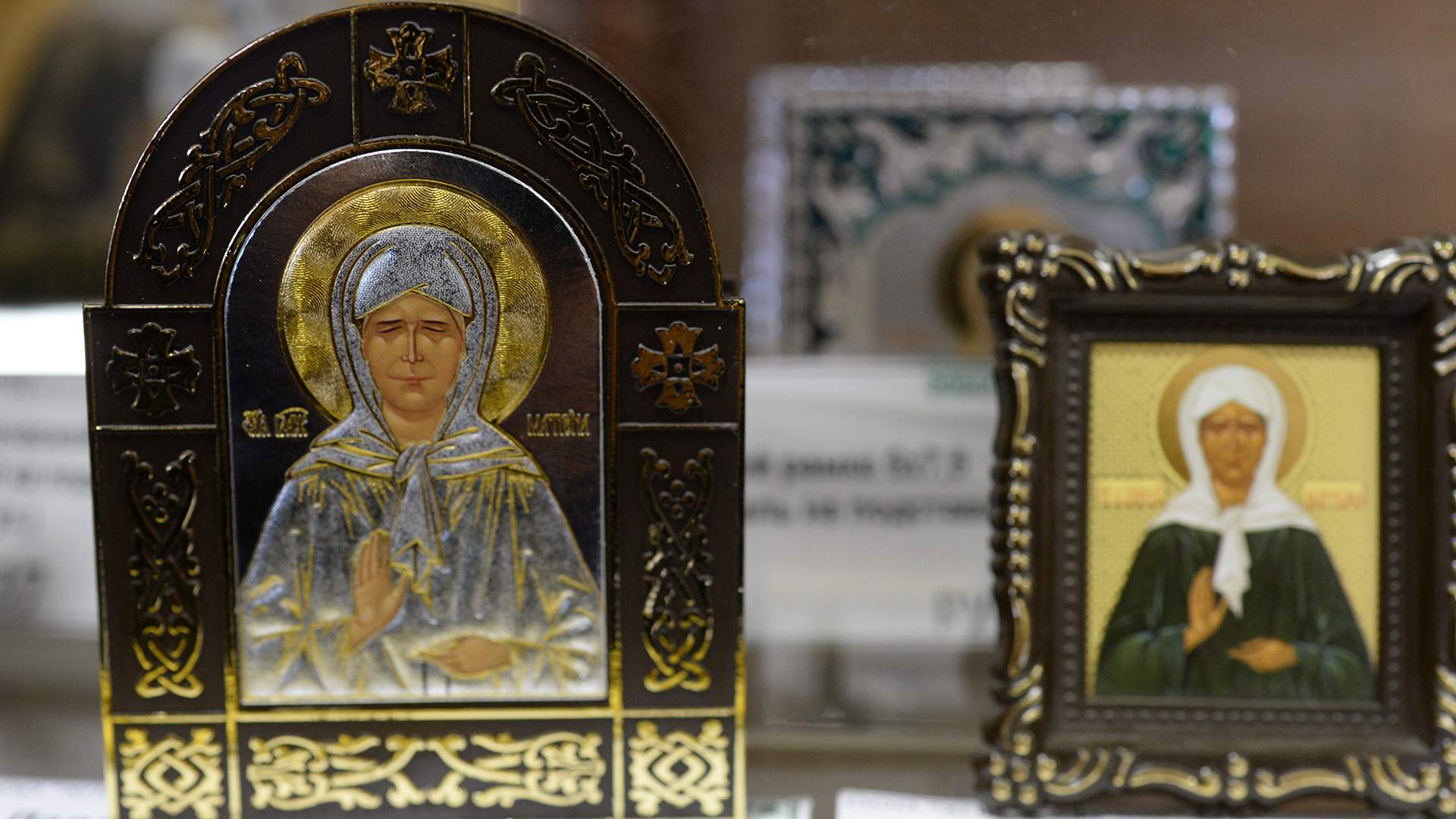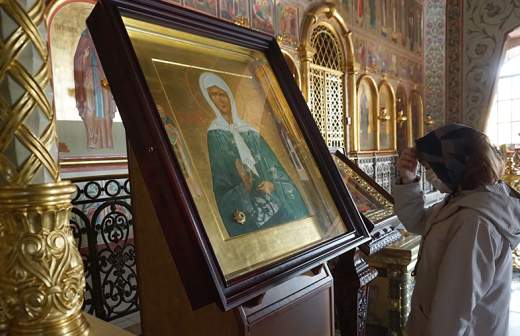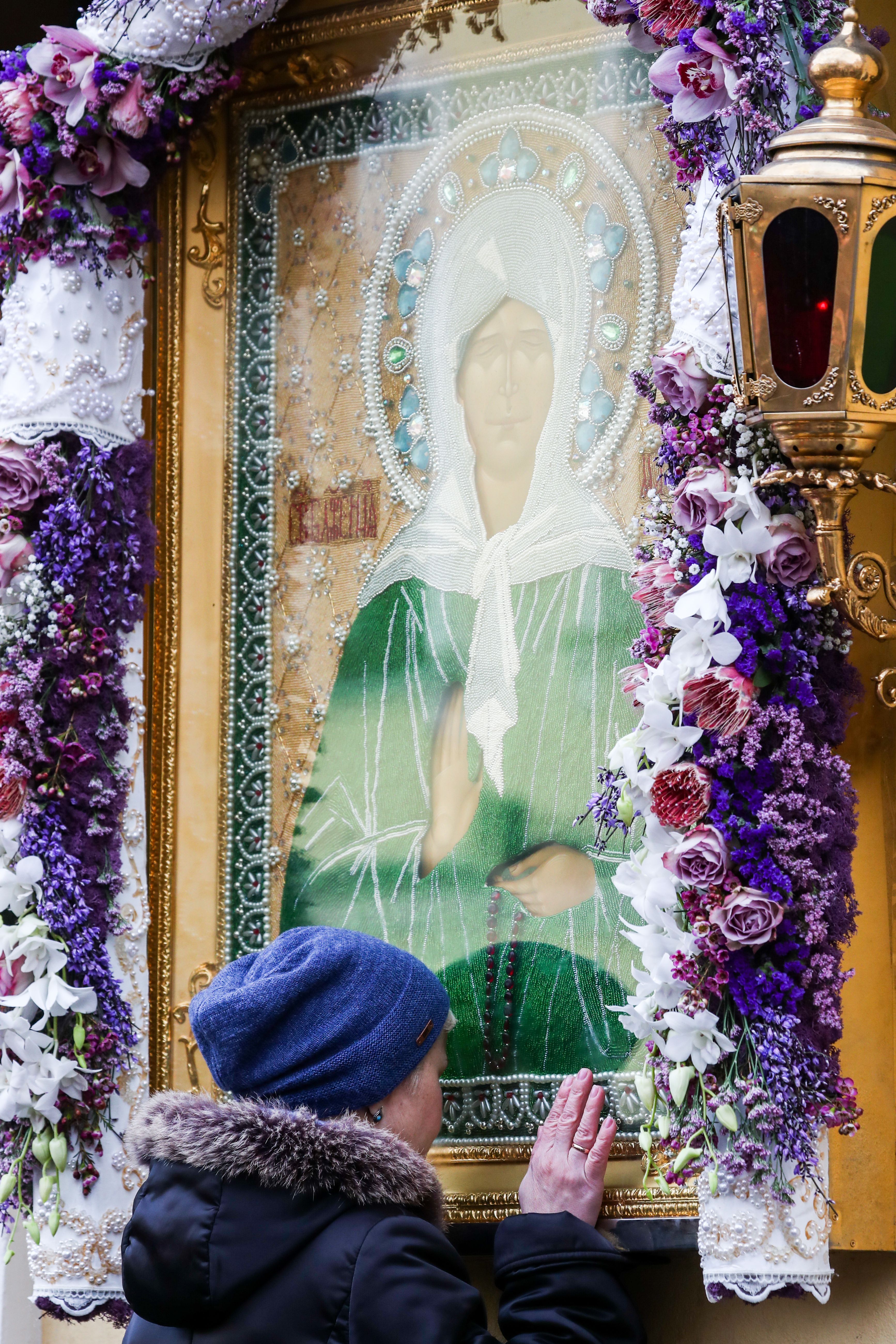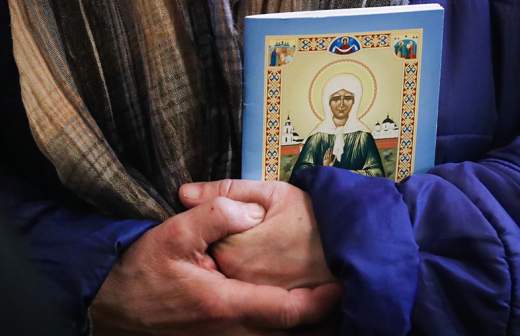- Статьи
- Society
- Matrona of Moscow - the eighth pillar of Russia: the life and miracles of the blessed, important prohibitions and omens
Matrona of Moscow - the eighth pillar of Russia: the life and miracles of the blessed, important prohibitions and omens

Every year in November, Matrona of Moscow is commemorated, a special event dedicated to the most famous of modern Orthodox saints. Matrona's memory is celebrated twice during the year: on November 22 and May 2, on her birthday and the day of her death. First of all, Matrona is remembered as a healer and seer. Her image is loved and honored by the people. 52 years after her death Matron received the status of a saint, after the all-church canonization. Details - in the material "Izvestia".
The story of the life and death of Blessed Matron of Moscow
Blessed Matron of Moscow (real name - Matrona Dmitrievna Nikonova) was born in 1881 in the village of Sebino, Tula province, presumably on November 22. Matrona's birthplace was located only 20 kilometers from the Kulikov Field. The girl's parents were ordinary peasants, 10 children were born in their family, and four, including Matrona, survived.
When the future healer came into the world, it turned out that she could not see anything. The parents were already not old, so the mother decided to give the girl for upbringing in the orphanage of Prince Golitsyn. However, this never happened due to the fact that the woman saw a prophetic dream: Matronushka appeared to her in the form of a white bird with a human face and sat on her right hand. As a result, the girl grew up in her ancestral home, and her parents loved her.
According to the Holy Scriptures, the Lord Omniscient chooses ministers long before their birth. So elected and Matrona, laying on her heavy cross, which she obediently and patiently carried all her life. According to the memories of eyewitnesses, during the baptism around Matrona and the font was found fragrant smoke, which is when incense is incense. This was told by a relative of the girl Pavel Prokhorov.
Father Basil, who administered the sacrament of baptism with Matrona, warned the parents, "If the girl asks for something, you will definitely turn directly to me, go and say directly what you need." He also added that in the future this girl would stand in his place and predict his demise. As a result, this is what happened. In the middle of the night the girl informed her mother that Father Vasily had died.
On the body of the newly born Matrona in the chest area there was a bulge in the shape of a cross. At a more realized age, her mother scolded her for not wearing a cross, to which the girl answered her: "Mommy, I have my own cross on my chest".
Matronushka was born not just blind, her eyes were initially absent, and instead of them were hollows. She was often bullied by her peers, sometimes even beaten with nettles or put in a pit. So she spent most of her time at home, where she prayed a rosary of a hundred beads. She also liked to go to the temple, which was very close by, and sang along to the choir, memorizing the texts of the service from her voice. Matronushka even had a favorite place in the temple - to the left behind the front door, near the western wall.
At about the age of seven Matronushka discovered her gift for healing and prediction. Therefore, in spite of her physical disabilities, the girl always knew that she had much more to gain in this life than the others. Matronushka always felt the approach of danger, natural disasters and emergencies. Thanks to the girl's prayers, people were healed and found comfort. Many people came to Matrona with their illnesses and sorrows, first in her father's house, and then everywhere she lived. Having the intercession before God, she helped many and always said: "It is God who helps!"
At a fairly young age Matronushka had a chance to join the pilgrimage. The daughter of a local landowner, Lydia Yankova, took the girl with her on a trip to the Kiev-Pechersk Lavra, the Trinity-Sergius Lavra and other holy places. When Matrona met with Righteous John of Kronstadt, the latter exclaimed: "Matronushka, come and come to me. Here comes my shift - the eighth pillar of Russia".

Since then Matrona has often been called the eighth pillar of Russia. The other seven are St. Anthony of Kiev-Pechersk, St. Theodosius of Kiev-Pechersk, St. Sergius of Radonezh, St. Tikhon of Zadonsk, St. Joasaph of Belgorod, St. Seraphim of Sarov, and John of Kronstadt himself.
At the age of 17 Matrona lost the ability to walk. The girl foresaw this outcome of events and said that in the temple to her a woman will approach her and take away her ability to walk. In the end it turned out so, Matrona did not try to avoid such an outcome, as she considered it God's will.

After the revolution, Matrona was left homeless and in about 1925 moved to Moscow. She lived wherever she could, with friends and acquaintances, and remained here until her death in 1952. Matronushka loved Moscow and called it the heart of Russia.
In the Orthodox tradition, several memorial dates are dedicated to Matron of Moscow. The first memorial day is dated May 2 - the day of the saint's death. Matronushka's birthday is November 22, the same date is the Memorial Day of Matrona of Constantinople. March 8 is also Matrona's Memorial Day, as on this day the Orthodox Church found her relics.
Where Matrona of Moscow is buried
When Matrona was still alive, she chose a place for burial - Danilovsky cemetery. The key intention of the woman was the desire to "rest under the ringing of bells", and this cemetery even in the Soviet years worked at the Holy Spirit Church.
Matrona of Moscow knew in advance about the day of her death, so shortly before May 2, she confessed and took communion. After her death, the woman was forgotten for some time and only a few people came to her grave to honor her memory.
The Blessed One predicted: "After my death, few people will go to my grave, only loved ones, and when they die, my grave will be deserted, except for the occasional visitor.... But after many years people will know about me and will go in droves for help in their sorrows and with requests to pray for them to the Lord God, and I will help everyone and will hear everyone".
As a result, Matronushka's grave became one of the most popular pilgrimage sites for Orthodox Christians decades later. People came there from all over the country, and many came from abroad.
The relics of Matrona of Moscow in the Pokrovsky Nunnery
Closer to the 90s of the last century, the attitude of the authorities to the Orthodox Church changed, gradually temples and churches began to be restored. In 1998, the remains of Matronushka were exhumed, and her relics were transferred to the Pokrovsky Monastery on Taganka. There they are to this day. During the exhumation, the robe in which the blessed one was buried and a cross were discovered.
And on May 2, 1999 Matron was canonized as a local saint. Five more years later, and the general church canonization took place.
Visiting the burial place of Matrona of Moscow on the Day of her memory is one of the most important rituals for many believers.
On November 22, believers come to the relics to ask for help and support. In addition, on this day Orthodox Christians study the life of the saint, recall stories about the miracles that Matrona performed during her lifetime. This helps believers to glorify her holiness.
It is customary to bring flowers to Matron, with white roses and chrysanthemums being her favorites. Parishioners can buy them on the way to the Pokrovsky Monastery. There are always so many flowers at Matrona's house that they are distributed: after worshiping the relics, church attendants give the consecrated petals and buds, which are usually kept at home near the icons.
Lifetime and posthumous miracles of Matron of Moscow
Matronushka's contemporaries told that from a young age the girl helped the needy to heal and get rid of physical ailments. Matrona was able to cure blindness, paralysis and other serious diseases.
In addition to the gift of healing, she had the gift of insight and foresight. Matronushka was able to predict many coming events and troubles, including the revolution and the Great Patriotic War. People came to her so that she could help them make important life decisions and gain spiritual wisdom.
About what and how to pray to Matronushka
On the day of Matronushka's memory, some believers visit the temples that bear her name to pray and pay homage to the saint. In addition, prayers and services are held in churches.
On the day of the memory of Matrona of Moscow, it is important to show mercy and help those in need. Remembering the life and good deeds of Matrona, many people support vulnerable categories of the population, making donations or participating in charity events. Believers turn to the saint in a variety of life situations, problems and trials.
Prayer to Matrona of Moscow
"O blessed Mother Matrono, with the soul in heaven before the Throne of God, with the body resting on earth, and with the grace given to you from above, exuding various miracles. Look now with thy merciful eye upon us sinners, who in sorrows, sicknesses and sinful temptations depend for our days, comfort us, despairing ones, heal our bitter afflictions, which God has allowed us through our sins, deliver us from many troubles and circumstances, beseech our Lord Jesus Christ to forgive us all our trespasses, iniquity and sinfulness, by which we have sinned from our youth even unto this day and hour, that through your prayers we may receive grace and great mercy, and glorify in the Trinity one God, Father, and Son, and Holy Spirit, now and ever and unto ages of ages. Amen."

In prayers to Matronushka, believers ask for healing, conception of a child, as well as success in exams. They also ask for protection from sin and poverty, recovery of relatives and friends. A believer in sincere prayer can ask Matronushka a lot.
Church holiday on November 22: folk omens, what not to do
On the day of the memory of Matron of Moscow it is recommended to visit the temple and pray to the saint. In the world on this day it is worth avoiding homesickness and sadness, it is recommended to spend time in company and avoid loneliness. On this day you can not swear profanely and be rude to others. Such behavior is fraught with consequences in the form of trouble at work and in personal life.
According to folk omens, you can not make a haircut, manicure and pedicure, otherwise the coming winter will pass in diseases. You can not hurry and rush, as well as start new things - the whole of the next year money will not be enough. As in many Orthodox holidays, on this day you should abstain from fatty and heavy food.
Servants of the Orthodox Church emphasize that many omens and superstitions have nothing to do with faith or any church canons.
Переведено сервисом «Яндекс Переводчик»







